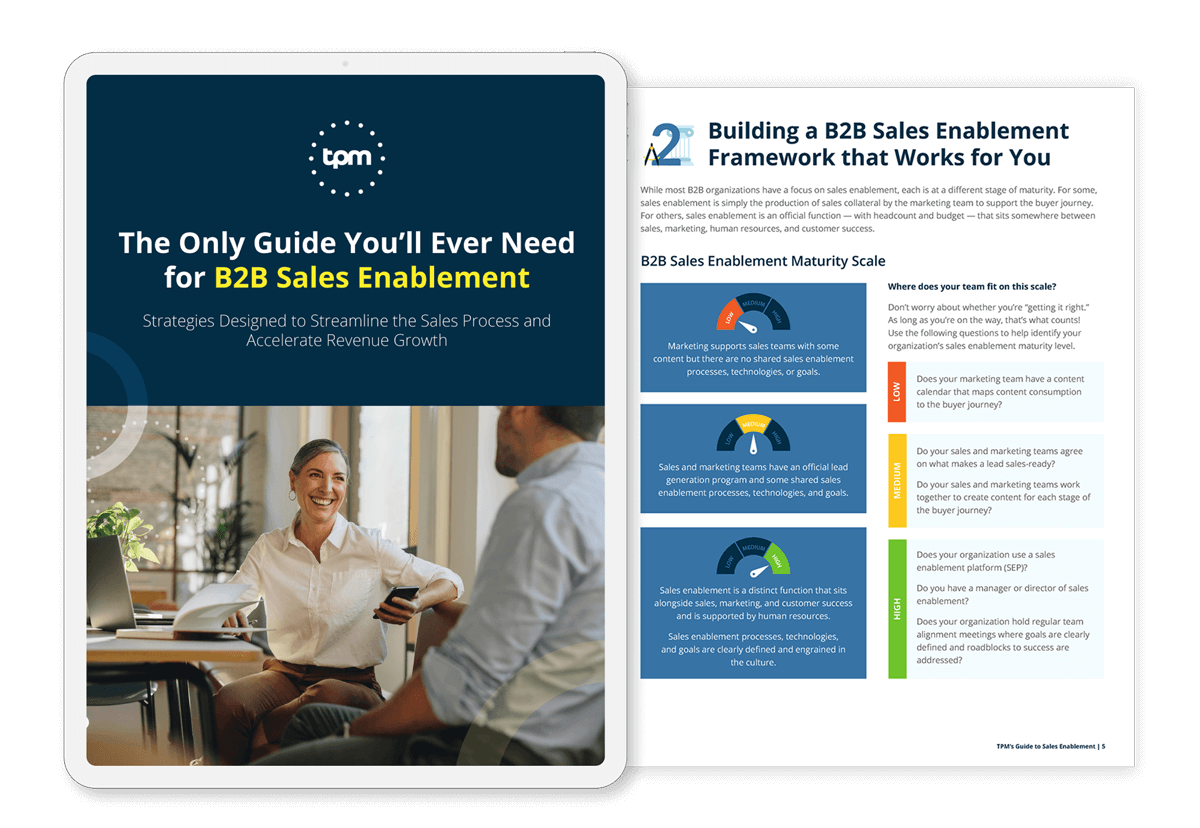The use of artificial intelligence isn’t new, surprising, or even really newsworthy. I’ve been talking about it for a few years now — and so has everyone else. Whether you were Team Humans or Team Robots when AI marketing tools first came into fashion, odds are good you’ve resigned yourself to AI in marketing as fact by this point.
But the cracks are starting to show. AI marketing problems are emerging — and the articles that once told us AI was the inevitable next step in our industry are now focused on AI and copyright issues, over-reliance on AI, or the ethical problems with AI tools. And it’s not just headlines that have prompted this (let’s face it) more-negative-than-usual blog post. Here at TPM, we’ve heard assumptions from a lot of clients — and colleagues — that, to me, are cause for concern.
Am I being dramatic? Maybe. But am I wrong? All signs point to no. AI marketing problems are very real, and making the wrong assumptions about this technology can spell serious trouble for your team.
7 Assumptions on the Road to AI Marketing Problems
I’m not really here to debate the pros and cons of AI in digital marketing. (We’ve done that already.) Responsible use of AI tools can still benefit marketing teams (for now), provided they avoid leaning too hard on ideas that have quickly become facts in the online world.
1. That “Not Plagiarized” Equals “Original”
Passing Grammarly’s (AI-powered) plagiarism check only means that you’ve managed to reorganize words in a way that will probably keep you clear of copyright suits. CYA? Check. But one of the disadvantages of artificial intelligence-powered text-generation tools is that they “learn” by reading other content online. The copy they produce is a regurgitation of other people’s thoughts. Studies show creativity and curiosity are vital to business success — and ChatGPT has neither.

Struggling with sales? AI isn’t always the answer.
Check out The Only Guide You’ll Ever Need for Sales Enablement for clear guidance and actionable advice on how to empower your sales team — whether you use AI or not.
2. That AI is Inherently More Accurate/Less Biased
Why are we still drinking this Kool-Aid?
- Apple urged to axe AI feature after false headline
- Google’s AI Search Errors Cause a Furor Online
- What AI thinks a beautiful woman looks like (white and thin)
- ChatGPT provides false information about people, and OpenAI can’t correct it
- Bigger AI chatbots more inclined to spew nonsense — and people don’t always realize
- 32 times artificial intelligence got it catastrophically wrong
Despite hundreds (if not thousands) of articles out there about factual inaccuracies and bias in AI-produced content, too many people still lean into the idea that the tools we use won’t lie or discriminate. They learned from humans — they’re just as biased, misinformed, and dishonest as we are.

3. That Parroting is the Same as Understanding
AI tools are excellent parrots. They repeat complex terms and statements with unearned confidence, which can easily trick us into thinking they understand what we’re saying — another of the drawbacks of AI. You know who else does this? Actual parrots. And none of us are lining up to have them compose a blog post on how customers can solve the challenges they face.
4. That More Content Means More Engagement
Volume feels like the name of the game when it comes to AI in marketing. After all, an inexperienced writer with a ChatGPT login can produce content in a fraction of the time it takes even a veteran wordsmith. (Accurate, but results are mixed.)
More marketing assets, less effort — who doesn’t want that? Honestly? Your customers.
No one ever made the decision to purchase a product or service from a company based on the number of blog posts it published. Your audience isn’t counting the frequency of your posts or social shares — they’re noticing whether or not you provide them with information that makes their lives better. (Yes, there is an argument here that AI allows a small team to do the work of many — but we’ll get into that in the next section.)

5. That Technology Can Replace Humans
This assumption is at the root of many AI marketing problems. Concerns about content quality, discrimination, and ethical problems with AI all boil down to companies assuming that a good enough tool can replace a person (or team).
We’ve done test after test at TPM demonstrating ways AI can’t compare with humans. It doesn’t have empathy; it can’t build a human connection. The fact that we’re all proclaiming that AI helps us increase personalization as we automate more and more parts of the buyer journey is kind of insane. Can AI give us the data we need to make customer experiences more personal? Yes. But it’s still our (human) interactions with prospects that make them choose us (or not).
6. That AI Tools Will Continue to Improve Forever
Stop being so negative and look how far AI has come! The AI marketing problems you’re complaining about will be solved soon enough.
Counterpoint: AI’s days may be numbered. That’s not fair. The days of AI tools’ continuous and exponential improvement may be numbered. Some experts suggest that large AI models may be running out of information to train on — which could dramatically slow (or even stop) efforts to improve and refine them to a level where they can match human outputs.
A number of major tech companies (Google, OpenAI, and Anthropic) have acknowledged that efforts to build more advanced AI tools are struggling. The AI bubble is bursting — per super-cool computer scientist Ben Zhao — and assuming you should continue to put up with AI marketing problems because the technology will eventually get past them is a massive mistake.

7. That Your Audience Expects You to Use AI
As an industry, we’ve all decided that AI use is inevitable. It’s expected. Everyone does it. (Nostra culpa: TPM hasn’t ignored the AI trends. We jumped on the bandwagon when it seemed to be what our customers wanted.)
But when you get down to it, your customers don’t care what tools you use. Most don’t even care what marketing tactics or lead-generation strategies you leverage. All they care about is that you’re helping them grow — bring in more customers, sell more widgets, or increase their profits. You could write blog posts in the dirt with a stick, and it wouldn’t matter to your clients if it somehow got them more leads, more sales, or more revenue.
AI Marketing Problems or No, TPM’s Still Here
As an agency, TPM isn’t abandoning AI. (Personally, I’m tempted to experiment with that stick-in-the-dirt idea.) We’ll keep using artificial intelligence — like any other tool — where and when it makes sense for our clients. But we’ll do it with an eye on the drawbacks of AI, using it cautiously and responsibly.
Our commitment is, and always has been, to our customers and their success. And our human experts are always here to provide the high-quality, personalized, effective marketing campaigns our clients need and expect. We’re here — drop us a line anytime.
